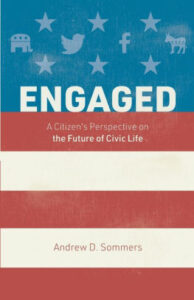Antioch University’s Graduate School of Leadership and Change (GSLC) is announcing new exciting opportunities for professionals and executives with the launch of their Professional Certificate Series. These two certification programs are timely with the presence of the many changes felt by our communities. Each course offers the convenience of being self-paced with a weekly average of 4-5 hours over the duration of three months.
Certificate 1: Leading for Inclusion and Racial Justice Certificate is designed for anyone with an interest in challenging racism at a structural or systemic level within their institutions, organizations or communities. You do not have to be in a formal leadership role in order to benefit from the material offered, as the Certificate is based in the belief that leadership for inclusion and racial justice occurs at all levels of any human community.
Certificate 2: Leading Transformative Change is for either emerging leaders or any leader who wants to “up” their ability by understanding the pros and cons of change leadership practices.
Read more below or find more information on the Professional Certificate series of your interest here.
Antioch University Unveils New Leadership Certification Courses
We are thrilled to announce the launch of the Professional Certificate Series by Antioch University’s Graduate School of Leadership and Change (GSLC). The purpose of the series is to offer cutting-edge and intellectually engaging courses on leadership and change for professionals and executives. Drawing upon Antioch’s 160-year legacy of human-centered innovative education, the participants will benefit from becoming familiar with novel, evidence-based frameworks, and practical approaches, which directly inform their practice as leaders and professionals in the chosen areas.
Participants can expect to experience a motivating and creative mix o f learning methods. They can also expect to have access to world-class instructors. Flexibility is built into these offerings and all the work may be completed asynchronously (at the participants’ own pace) requiring around 4 to 5 hours of work per week. However, unlike many other programs, we have created regular,
optional opportunities to engage with the course instructors on a real-time basis. This relational aspect is a hallmark of the GSLC.
Currently, the series includes the following two certificates, each comprised of three courses:
Certificate 1: Leading for Inclusion and Racial Justice
Courses: Developing ‘Identity Intelligence’; Leading for Inclusion; Challenging Social Systems
Certificate 2: Leading Transformative Change
Courses: Foundations of Transformative Change; Strategic Planning for Sustainable Futures; Leading and Implementing Successful Change
For additional information and for course start dates, please visit GLSC Professional Certificates.
For organizations sending three or more individuals, we will offer a 15% discount.
You can find the original version on the Antioch University’s Graduate School of Leadership and Change at www.antioch.edu/academics/leadership-management/certificates/.


 Discussion groups can foster social bonds that are critical for student success.
Discussion groups can foster social bonds that are critical for student success. By Andrew D. Sommers
By Andrew D. Sommers Beyond Civility: The Competing Obligations of Citizenship
Beyond Civility: The Competing Obligations of Citizenship